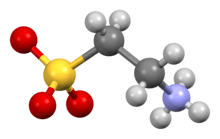I (Kitty) have been taking taurine supplements because I know that taurine synthesis declines significantly after age 20 and plays a role in maintaining a healthy weight. Recently, I saw taurine listed as a recommended supplement for eye health, which caught my interest since I suffer from dry eyes and notice that eye drops improve my vision. I’m excited to explore whether increasing my daily taurine intake could further benefit my eyesight.
Taurine, an amino acid found naturally in the body and in foods, plays an important role in eye health. It is particularly abundant in the retina, the light-sensitive tissue at the back of the eye. Research indicates that taurine is essential for maintaining retinal function, protecting against oxidative stress, and supporting overall eye health.
How Taurine Supports Eye Health
- Protection Against Oxidative Stress:
- The retina is highly susceptible to oxidative stress. Taurine has antioxidant properties that protect retinal cells from oxidative damage, which is important for maintaining long-term eye health and preventing degeneration.
- Prevention of Retinal Degeneration:
- Taurine deficiency has been linked to retinal degeneration. Studies in animals have shown that a lack of taurine can lead to progressive retinal damage and even blindness. Taurine is thought to stabilize cell membranes and prevent cell death in the retina, which could help delay or prevent degenerative conditions like retinitis pigmentosa.
- Regulation of Electrolytes and Hydration:
- Taurine helps regulate electrolyte balance in cells, ensuring that the eyes stay hydrated and cells maintain proper function. This is particularly important in preventing dry eye and supporting the optimal function of photoreceptor cells, which are critical for vision.
- Supporting Visual Signal Transmission:
- Taurine is involved in the visual transduction pathway, which is the process by which light signals are converted into nerve impulses that the brain interprets as vision. By supporting this pathway, taurine plays a role in enhancing visual sharpness and clarity.
Sources of Taurine
Taurine is naturally present in foods, especially animal-based proteins:
- Meat (especially red meat)
- Fish and shellfish
- Dairy products
- Eggs
It’s less abundant in plant foods, which means vegetarians will have lower taurine levels.
Supplementation and Dosage
While there’s no established daily requirement for taurine, common dosages for general health range from 500 mg to 2,000 mg per day.
*= 1-2 TSP per day based on Bulk Supplements Taurine Powder
Beginning around 20 years of age, natural taurine levels in the body, including in the eyes, tend to decrease, which can impact various functions that rely on this amino acid. Taurine is abundant in young tissues and essential for numerous biological processes.
How Adulthood Impacts Taurine Levels
- Reduced Synthesis:
- Taurine synthesis depends on certain enzymes and co-factors, which tend to diminish with age. This means that the body produces less taurine over time, leading to lower circulating levels, particularly in tissues where taurine is critical, such as the retina.
- Decreased Absorption and Metabolism:
- With age, digestion and nutrient absorption can become less efficient. This can mean that dietary taurine, primarily sourced from animal products, is not absorbed as effectively, further reducing the body’s available supply. Additionally, older adults often eat less protein-rich food, which is a primary source of taurine.
- Increased Demand in Tissues:
- As oxidative stress and cellular wear increase with age, tissues like the retina may need more taurine to protect against damage. However, lower taurine availability and reduced production mean that this demand is often unmet, potentially contributing to age-related vision decline and other health issues.
- Decline in Cellular and Mitochondrial Health:
- Taurine is involved in cellular hydration, electrolyte balance, and mitochondrial function, which are critical for energy production and cell health. As mitochondrial efficiency decreases with age, taurine depletion can exacerbate these effects, leading to compromised cellular health and increased susceptibility to degenerative conditions.
Ways to improve bioavailability when taking taurine supplements
There are several strategies to improve taurine bioavailability, especially since taurine is best absorbed when combined with certain dietary practices or nutrients.
Consume Taurine with Protein-Rich Foods
- How to Do It: Pair taurine supplements with meals rich in protein sources like eggs, chicken, fish, or yogurt. This not only improves taurine absorption but also supports other amino acids and nutrients essential for cellular function.
- Why It Works: Taurine is abundant in protein-rich foods like meat, fish, and dairy, which also contain complementary amino acids that can aid its absorption and utilization.
Add Vitamin B6
- Why It Works: Vitamin B6 (pyridoxine) is essential for taurine synthesis in the body, as it acts as a cofactor in converting cysteine (a precursor amino acid) into taurine.
- How to Do It: Include foods high in vitamin B6, such as chickpeas, bananas, and sunflower seeds, with your meals or supplements. Alternatively, taking a B-complex vitamin alongside taurine may be beneficial, especially if your diet is low in B6.
Take Taurine with Omega-3 Fatty Acids
- Why It Works: Omega-3 fatty acids help stabilize cell membranes and can improve the retention of taurine within cells, particularly in tissues like the retina and brain.
- How to Do It: Pair taurine supplements with omega-3-rich foods like salmon, sardines, chia seeds, or a high-quality fish oil supplement. This can support eye health and cellular absorption of taurine, enhancing its efficacy.
Consume with a Source of Magnesium
- Why It Works: Magnesium supports taurine uptake at the cellular level by enhancing the transport and retention of taurine in tissues.
- How to Do It: Include foods high in magnesium, such as spinach, almonds, and avocado, or consider a magnesium supplement with taurine. Magnesium also has a calming effect that complements taurine’s role in reducing stress and promoting relaxation.
Use with Other Amino Acids, Especially Glycine (Collagen)
- Why It Works: Glycine is another amino acid that works synergistically with taurine, particularly in the nervous system. This combination can support better bioavailability and complement taurine’s calming effects.
- How to Do It: Consider pairing taurine with foods or supplements high in glycine, such as bone broth, gelatin, or collagen supplements.
Take Taurine on an Empty Stomach (Optional)
- Why It Works: Amino acids, including taurine, can be more readily absorbed when taken on an empty stomach because they don’t have to compete with other amino acids from food.
- How to Do It: If you’re supplementing with taurine alone, consider taking it first thing in the morning or between meals for potentially enhanced absorption. However, taking taurine with food can also provide complementary nutrients, as outlined above, so it depends on individual tolerance and goals.


